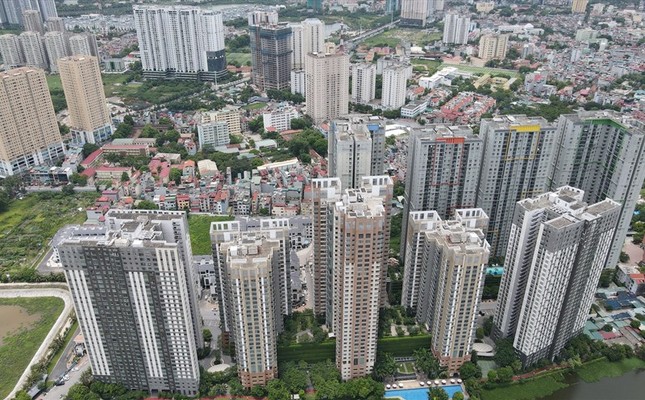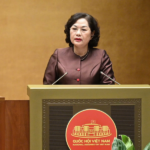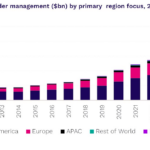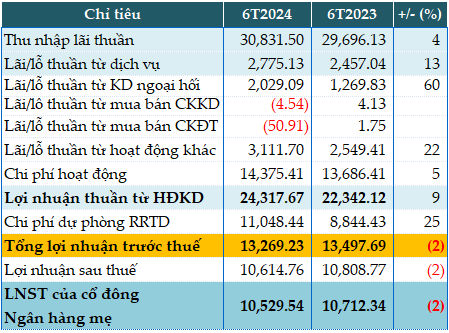Restarted Projects and Surging Credit: A Vietnamese Real Estate Overview
According to the State Bank of Vietnam, as of March 2025, credit outstanding for real estate business reached over VND 1,560 trillion, a significant increase of VND 260 trillion compared to the end of 2024 (VND 1.3 million billion). This surge in credit reflects a 20% year-over-year growth.
The growth in credit for real estate business is outpacing the overall credit growth in the banking system. As of April 18, total credit outstanding in the system reached VND 16,280 trillion, up 4.27% from the end of 2024 and a substantial increase of 18.25% from the same period in 2024 (in the same period in 2024, credit increased by 1.48% compared to December 2023).
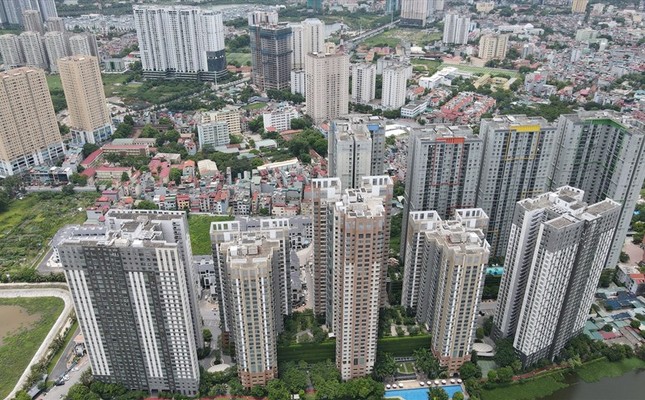
Real estate credit is on the rise as many projects restart.
From the perspective of commercial banks, the first-quarter financial reports of several banks revealed a positive trend in real estate business credit growth, and this sector also accounts for a significant portion of their total credit outstanding.
At Techcombank, real estate credit stood at over VND 215 trillion as of the first quarter, accounting for nearly 34% of total credit outstanding and a 20.6% increase from the end of 2024. VPBank’s real estate business credit was close to VND 186 trillion, contributing over 25% to its total credit. SHB’s real estate credit exceeded VND 141 trillion, making up 25.4% of its total credit and an 11.3% rise from the previous year.
According to experts, banks are actively injecting capital into the real estate sector as numerous projects restart, and the market is showing signs of abundant supply. Additionally, mortgage interest rates remain relatively low.
Currently, many commercial banks offer home loan interest rates ranging from 5.5% to 6.5% per year, fixed for the first two years, followed by a floating rate based on the market. Some banks even allow immediate full repayment without penalties or additional fees, provided that the borrower has collateral and can demonstrate a clear source of income and financial stability.
Mr. Nguyen Quoc Hung, Vice Chairman and General Secretary of the Vietnam Banks Association, stated that real estate lending will be the main driver to achieve the 16% credit growth target. Instead of tightening capital supply in this sector, the State Bank of Vietnam is guiding capital flow towards segments with genuine demand.
Accordingly, the State Bank of Vietnam is expediting the implementation of a VND 145 trillion package for social housing loans and a preferential loan program for homebuyers under 35 years old, with interest rates 1-3% lower than the market rate. The authority is also strengthening the supervision of potentially risky loans, especially those involving banks with close relationships with real estate businesses.
Recently, the government instructed the State Bank of Vietnam to intensify inspections, particularly of joint-stock commercial banks with real estate businesses as their subsidiaries.
Mr. Hung emphasized that boosting real estate credit could provide a much-needed stimulus to the economy. However, without careful control and proper guidance of capital flow, risks remain prevalent, potentially destabilizing the banking system and the financial market.
Caution on Real Estate Credit Bubble
In the first quarter of 2025, Mr. Nguyen Van Sinh, Deputy Minister of Construction, reported positive developments in real estate credit. Commercial banks are encouraged to extend credit to real estate projects that cater to genuine housing needs, especially social housing and affordable housing for low-income earners.
To achieve the targeted system-wide credit growth of approximately 16% in 2025, the State Bank of Vietnam must remain vigilant in managing credit risks in the real estate sector. It requires credit institutions to exercise prudence, ensure financial stability, and prevent a credit bubble in this field.
According to Mr. Nguyen Van Dinh, Vice President of the Vietnam Real Estate Association, millions of billions of dong are flowing into the real estate sector, yet many businesses and projects still struggle to access capital. Meanwhile, the high-end segment easily secures funding, causing a severe imbalance in supply and demand. Therefore, adjusting capital flow into housing segments that align with people’s purchasing power is imperative.
Mr. Dinh also pointed out another issue: over 50% of real estate businesses’ capital comes from bank credit, while banks use short-term capital for long-term lending, posing significant risks to the financial system.
Thus, diversifying capital channels through bonds, bills, investment funds, and development funds is essential. These alternatives have been discussed for over a decade, but legal obstacles have hindered their implementation.
Crafting Vietnam’s Global Financial Destiny: The Significance of a Dual-Hub Paradigm
Vietnam’s dynamic financial landscape is evolving, and a multi-hub system is the key to unlocking its potential. We propose a visionary strategy to establish Da Nang as an innovative testbed and a green finance powerhouse, working in harmony with Ho Chi Minh City’s established financial prowess. This strategic move will create a robust and sustainable financial ecosystem, harnessing the strengths of both cities.
Governor Nguyen Thi Hong: The Bad Debt of the Credit System is Currently High and on the Rise, Posing Significant Challenges for the Banking Sector
The governor emphasized the urgency of providing liquidity support to commercial banks through special lending facilities to ensure the safety and security of the credit system. Synchronizing the legal framework for dealing with non-performing loans will facilitate capital rotation and enhance credit accessibility for citizens and businesses alike.
The Ultimate Oceanfront Metropolis: SmartRealtors Proudly Presents Blanca City
On May 20, 2025, in Ho Chi Minh City, Vietnam, SmartRealtors & Partners, a leading real estate company, was officially appointed as the exclusive distributor for the prestigious Blanca City seaside metropolis project. This announcement was made at the project’s kickoff event, hosted at the prestigious GEM Center in District 1. Sun Property, a prominent member of the renowned Sun Group, is the visionary developer behind this transformative urban project.

